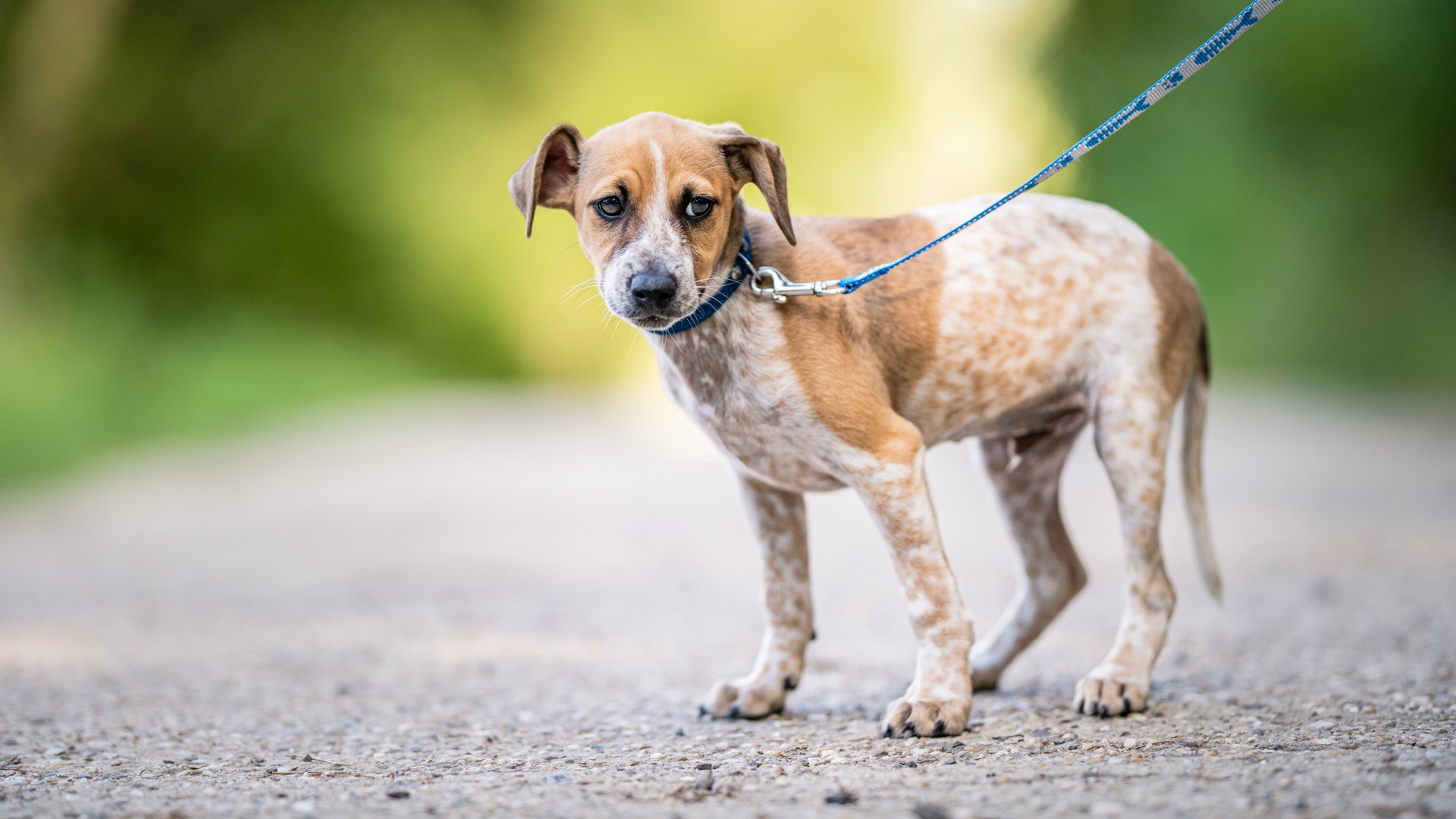
Caring for an anxious dog can be an incredibly challenging journey, so if you're struggling right now, know that you're not alone and that change is possible.
As dog owners with anxious pups, we not only have the run-of-the-mill pet parent concerns to think about — like which long lasting dog chews make for the most nutritious treat — we also have so many other worries and uncertainties that can really take a toll.
Thankfully, there is help available and you don't have to struggle alone. There's no quick fix for anxiety in dogs but with time, patience and consistency, healing is possible.
To help set you and your dog up for success, expert behaviorist Renee Rhoades has shared a post to Instagram in which she reveals six common pitfalls pet parents make that can derail their anxious dog's progress. Read on to learn more...
1. Not knowing your dog's body language vocabulary: "Canine body language is broad and nuanced," explains Rhoades. "What you see in your dog is likely parallel but not exactly the same as another dog." That's why working with a qualified behaviorist can be so helpful — they are well trained to decipher dog body language and the subtle differences in each anxious dog's behavior, and can tailor strategies specific to them.
2. Your behavior is too unpredictable to trust: Rhoades says that all animals (not just anxious ones) thrive on safety and predictability when it comes to their caregivers. "You must be a source of positivity," she says. This means that as dog owners, we must strive to offer an environment of understanding and patience.
3. A lack of novel, varied, biologically fulfilling enrichment: "Enrichment has boomed in the last five years, but there is more to it than KONGs and lickmats. Your dog needs options to be a dog," Rhoades says. A great example of a different form of enrichment you could offer your dog is sniffing, which has a calming effect on their nervous system and also helps to tire them out. Check out "I tried a 45-minute 'sniffari', and it tired out my border collie more than a two-hour hike!," for one pet parent's account of how scent work helped her pup.
4. Your dog doesn't get enough rest and recuperation: Did you know that adult dogs need around 15 hours of rest? It's true! "When stress goes up, so does the amount of sleep needed," explains Rhoades. A tired dog is a less resilient dog.
5. Not investigating the role of pain: "Pain is not always picked up on at routine exams, so further analysis may be needed to assess if pain is a contributing factor," says Rhoades.
6. You're listening to multiple sources for guidance: "There is A LOT of advice out there and the majority of it can be generic (at best). Anxious dogs deserve individual treatment plans," Rhoades stresses.
If you have an anxious dog, rest assured that healing is possible and that you don't need to struggle alone. We highly recommend reaching out to a qualified behaviorist who will be able to offer support and guidance.
And for more on this topic, check out these eight reasons why your dog is anxious and how to help them.







